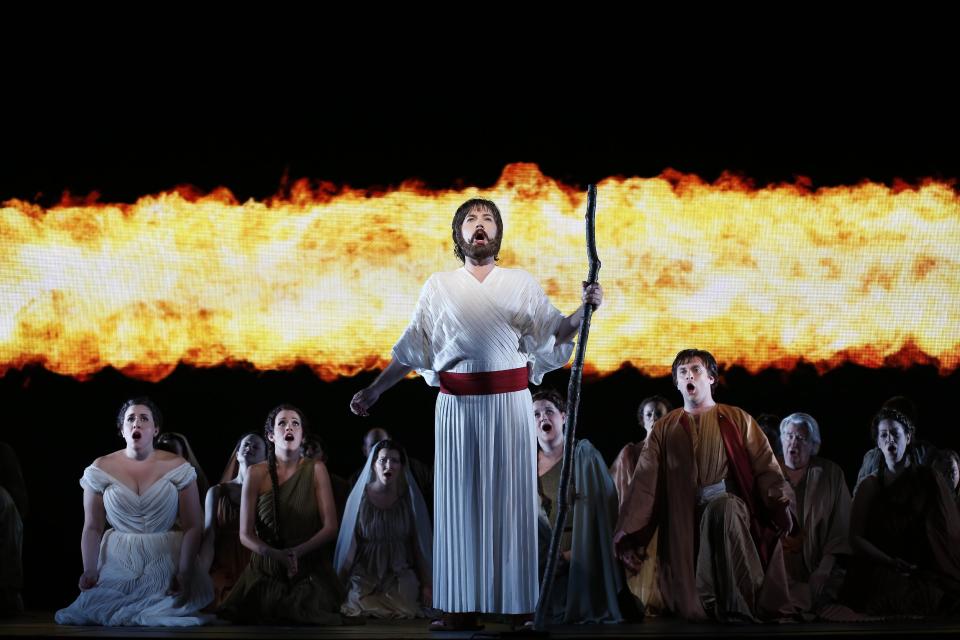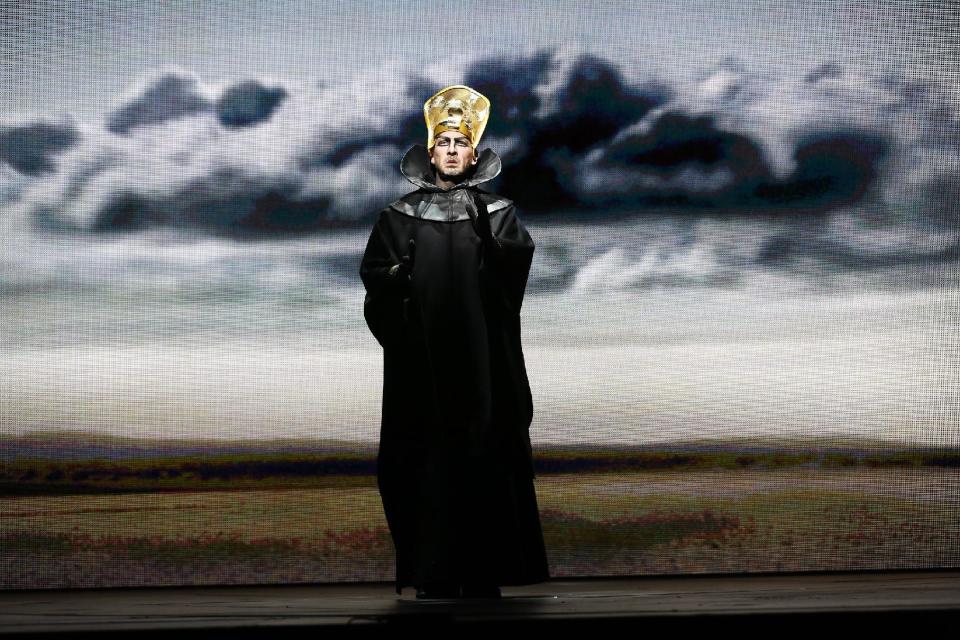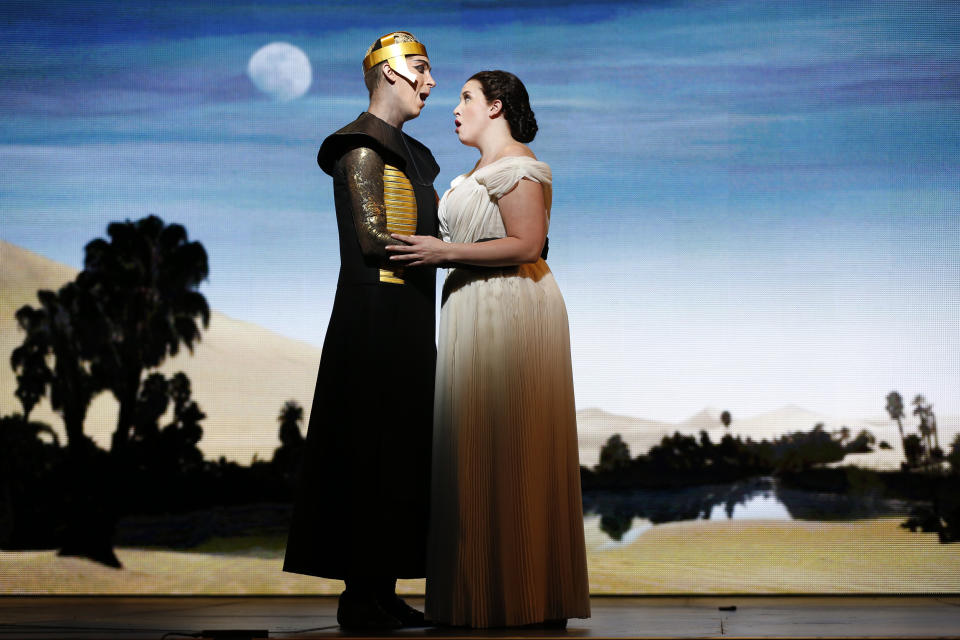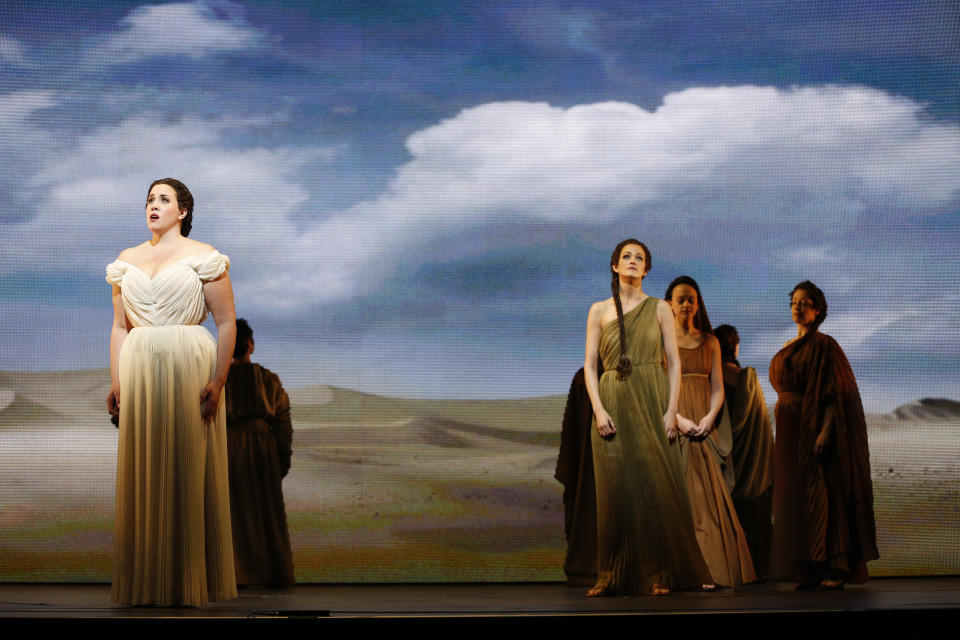NYCO returns to City Center after 48-year absence
NEW YORK (AP) — The Exodus was the subject of New York City Opera's return to City Center following a 48-year absence.
Not the company's exit from Lincoln Center after the 2010-11 season, but Rossini's rarely performed "Mose in Egitto (Moses in Egypt)."
One block south of Carnegie Hall in midtown Manhattan, City Center was home to the company for 1,447 performances of 108 operas, starting with Puccini's "Tosca" on Feb. 21, 1944, and ending with Lehar's "The Merry Widow" on Nov. 15, 1965. City Opera then moved to Lincoln Center's New York State Theater, its home until huge financial losses led to a drastic downsizing. City Opera became an itinerant company presenting four works a year, down from 16 less than a decade ago.
"Mose," which opened Sunday, is the third of its four productions in a season that concludes with Offenbach's "La Perichole" later this month. Premiered in 1818, the dramatic Rossini composition has a libretto by Andrea Leone Tottola and combines the Exodus with a love story involving the Pharaoh's son Osiride and the Israelite woman Elcia.
Director Michael Counts' production is dominated by Ada Whitney's videos, shown on a pair of LED screens that are pushed together most of the time to create images 17 feet high and 39 feet wide. The screens are pretty much the entire set.
Scenes shift back and forth from reality to abstraction, some of them distractingly bright. Among the memorable images are desert and a cave, a sunset, fire, storm clouds and an astronomy-based backdrop of stars and the moon. There also is lightening that kills the first born and a concluding Red Sea that parts and comes back together to drown the Egyptians.
David Salsbery Fry sang the title role in Tuesday night's performance, as he did at Sunday's opening after David Cushing took ill. With noble stature and flowing bass-baritone, Fry's Moses had a world weary and endearing quality, highlighted by the prayer-like "Dal tuo stellato soglio (From your starry throne)" in the final act.
Wayne Tigges had a darker bass-baritone as the angry Faraone (Pharaoh) and coped well with the slow, stylized stage movements Counts and choreographer Ken Roht gave the Egyptians, in the style of Robert Wilson. Video combined with a stage turntable and choreography to give the Egyptians' actions an appearance of a low-gravity grace.
Tenor Randall Bills coped well with the high line of Pharaoh's son, Osiride, and soprano Sian Davies showed a shiny coloratura technique as Elcia, although a few notes turned harsh in her second-act aria. The interplay between the lovers lacked passion.
Soprano Keri Alkema, the only primary singer not making her company debut in the run, had a darkness and vulnerability as Pharaoh's wife Amaltea. Aldo Caputo showed a powerful tenor as Aronne (Aaron).
Jessica Jahn costumed the Egyptians in black and gold, resembling vintage Donna Karan, and the Israelites in flowing robes.
Conductor Jayce Ogren led a performance that lacked in Rossinian bel canto style, missing opportunities for verve and excitement. Ogren becomes the company's music director on Sept. 1, its first since George Manahan held the post from 1996-11.
___
Online:
http://www.nycopera.com




